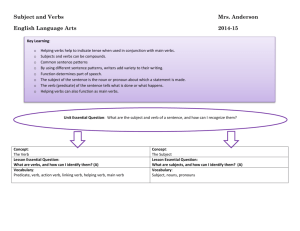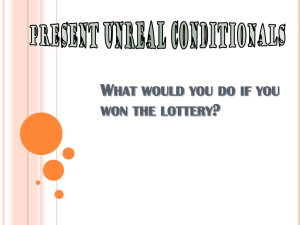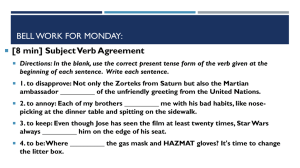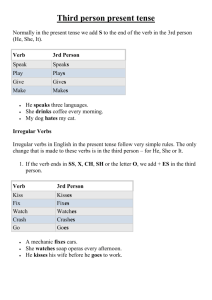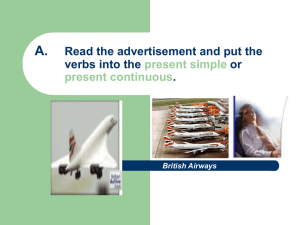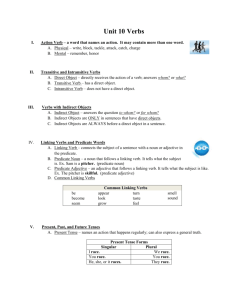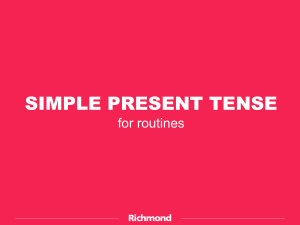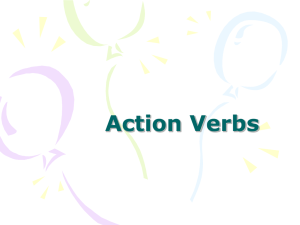verbs study guide
advertisement
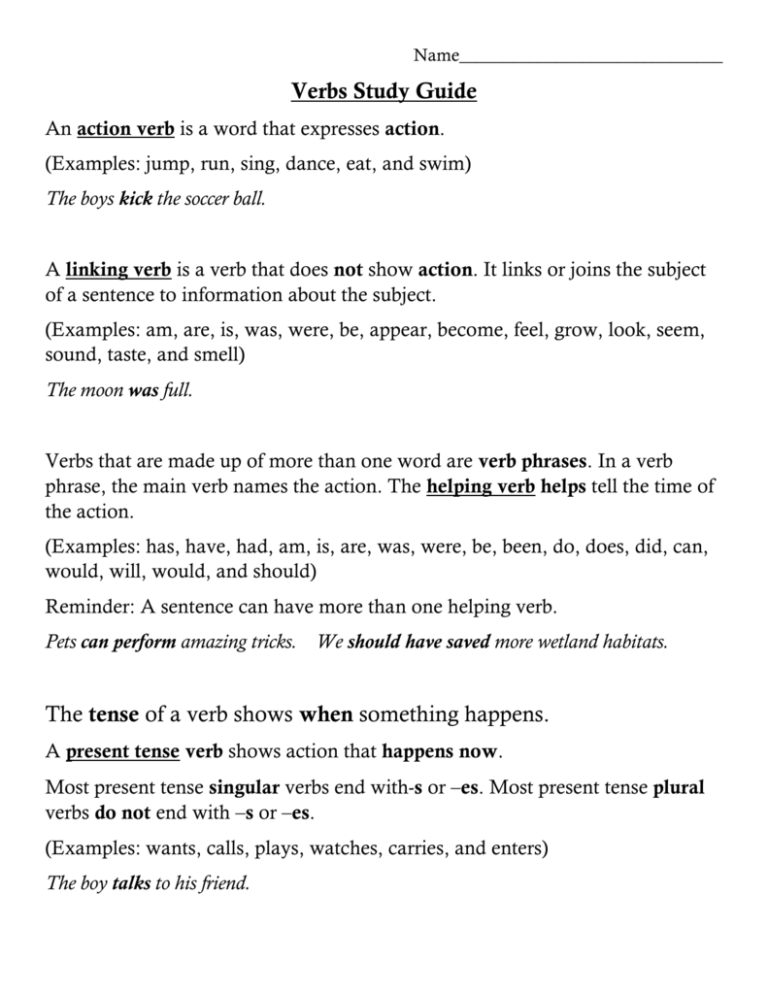
Name______________________________ Verbs Study Guide An action verb is a word that expresses action. (Examples: jump, run, sing, dance, eat, and swim) The boys kick the soccer ball. A linking verb is a verb that does not show action. It links or joins the subject of a sentence to information about the subject. (Examples: am, are, is, was, were, be, appear, become, feel, grow, look, seem, sound, taste, and smell) The moon was full. Verbs that are made up of more than one word are verb phrases. In a verb phrase, the main verb names the action. The helping verb helps tell the time of the action. (Examples: has, have, had, am, is, are, was, were, be, been, do, does, did, can, would, will, would, and should) Reminder: A sentence can have more than one helping verb. Pets can perform amazing tricks. We should have saved more wetland habitats. The tense of a verb shows when something happens. A present tense verb shows action that happens now. Most present tense singular verbs end with-s or –es. Most present tense plural verbs do not end with –s or –es. (Examples: wants, calls, plays, watches, carries, and enters) The boy talks to his friend. A past tense verb shows action that has already happened. Most verbs in the past tense end in –ed. (Examples: tried, played, wanted, called, watched, and entered) The girl played with her doll yesterday. A future tense verb shows action that will happen. Add will (or shall) to most verbs to show future tense. (Examples: will want, will call, will play, shall carry, and shall enter) I will travel to Florida for vacation. Present participles ALWAYS end in –ing. They are the form used with is, am, and are in verb phrases. (Examples: is looking, am running, and are reading) She is studying this paper right now. Past participles USUALLY end in –ed or -d. They are the form used with have, has, and had in verb phrases. (Examples: have looked, has stopped, and had hopped) I have played many different kinds of sports.


